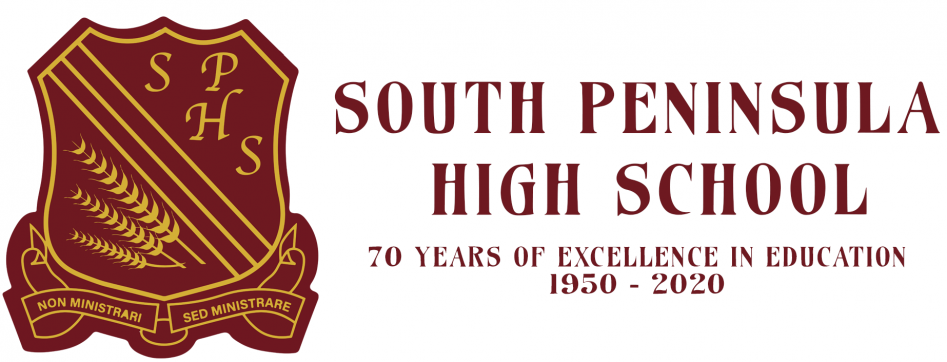PREAMBLE
South Peninsula High School recognises the particular value of the rich and diverse religious heritage of our school community. While we acknowledge that the school has an educational responsibility for teaching and learning about religion and religions, and for promoting these, we understand that we should do so in ways that are different from the religious instruction and religious nurture provided by the home, family, and religious community.
This policy has been developed with reference to the following:
• The Constitution of the Republic of South Africa, Act 108 of 1996
• South African Schools Act, Act 84 of 1996
• Western Cape Provincial School Education Act, Act 12 of 1997
• Department of Education Report of the Ministerial Committee on Religious Education of 2003
• Western Cape Religion in Education Information Document for Schools
RELIGION POLICY
The South African Schools Act (Act 94 of 1996) upholds the constitutional rights of all citizens to freedom of conscience, religion, thought, belief and opinion, and freedom from unfair discrimination on any grounds whatsoever, including religion, in public education institutions.
Within this constitutional framework, and as a public school, we have a responsibility to promote the core values of a democratic society, through the curriculum, through extracurricular activities, and in our approach in general. These core values include equity, tolerance, multilingualism, openness, accountability, and social honour.
- Equity: The education process in general, as well as this policy, must aim at the development of a national democratic culture with respect for the value of all of our people’s diverse cultural, religious and linguistic traditions.
- Tolerance: Religion in education must contribute to the advancement of inter-religious tolerance and interpersonal respect among adherents of different religious or secular worldviews in a shared civil society. Educators must ensure that all, irrespective of creed, sexual orientation, disability, language, gender, or class, feel welcome, emotionally secure, and appreciated.
- Diversity: In the interest of advancing informed respect for diversity, as an educational institution we have a responsibility to promote multi-religious knowledge, understanding, and appreciation of religions in South Africa and the world. Teaching should, at all times, engender a sense of acceptance, security, and respect for learners with differing cultural backgrounds and religious traditions.
- Openness: Schools, together with the broader society, play a role in cultural formation and transmission, and we must promote a spirit of openness in which there shall be no overt or covert attempt to indoctrinate into any particular belief or religion.
- Accountability: As systems of human accountability, religions cultivate moral values and ethical commitments that can be recognised as resources for learning and as vital contributions to nation-building.
- Social Honour: While honouring the linguistic, cultural, religious or secular backgrounds of all learners, we cannot allow the overt or covert denigration of any religion.
The spirit of the policy is to embrace the religious diversity of South Africa, allowing everyone the right to freedom of conscience, religion, thought, belief and opinion.
RELIGIOUS OBSERVANCES
The South Peninsula High School will, where possible, make provision for important holy days in regard to the setting of examinations and tests, to ensure that learners are not prejudiced by their attendance at religious observances.
In terms of the Act, the governing body has the mandate to determine the religious observances of the school.
South Peninsula High School allows students of the Muslim faith to attend the Friday mosque service in the area.
CONCLUSION
Our policy for religion in education, therefore, is designed to support unity without uniformity, and diversity without divisiveness.
